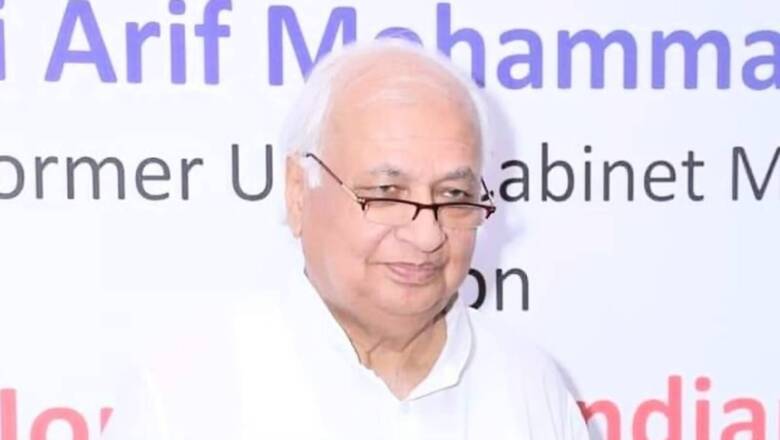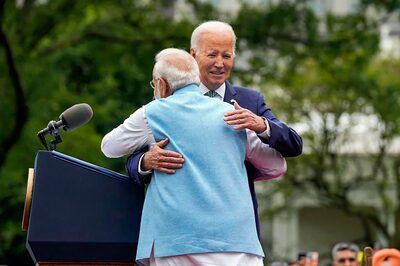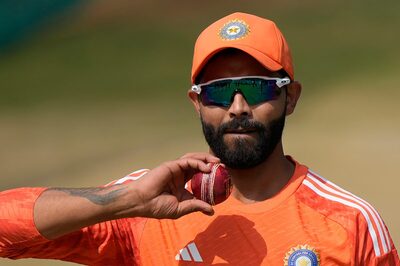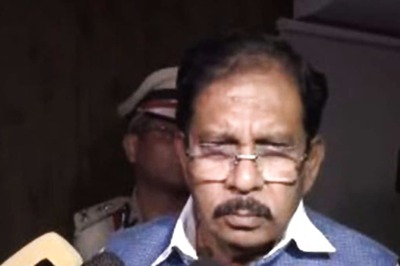
views
As the Karnataka high court is set to deliver its verdict on whether women students should be allowed to enter educational institutions in a hijab, Kerala governor Arif Mohammad Khan said he believed that the controversy is a “conspiracy”.
“When you go to an institution, educational or otherwise, you follow the dress code of that place. The institution won’t change its rule for the select few. I feel bad for these young girls; they are innocent and are being made pawns for the bigger, sinister game of targeting the Modi government…” Khan told Firstpost.
Amidst the call to bring in the Uniform Civil Code in the country, the governor opposed the use of the term, and said the idea is not uniformity but to make a case for common rights and obligations. “We need to understand that Common Civil Code is a constitutional obligation, decided by our Constituent Assembly. The only debating point is its timing: Whether it should be made now, or we should wait for some more time.”
On minority-pandering in the name of secularism, Khan said he publicly objected to “this interpretation”. “I say it categorically that I resent the use of the term ‘minority’ By using this term, one is inclined to see Muslims as a lesser being. This takes away the notion of equal citizenship, a sense of pride. The most fundamental folly of Nehruvian secularism is that it condemns Muslims not as equals but as a permanent minority to Hindus,” he told the publication in an interview.
He said he has been issued fatwas several times, and was attacked for his recent temple visits to Sabarimala and Ujjain’s Mahakal temples. “As far as I am concerned, my God is not confined to any place of worship, including temples or mosques. There’s a famous Prophetic tradition which says that God can be seen in those who are unwell, hungry and in pain. There’s also a beautiful shloka in the Bhagavad Gita. I am a believer, but I am not a ritualist. For me, God is omnipresent, and not confined to temples or mosques.
When asked about the difference in approach of Rajiv Gandhi and Narendra Modi in dealing with issues such as Ram Temple or Shah Bano case, Khan, who has worked with both the leaders, said, “I will say Rajiv ji was a gentleman. He wouldn’t have done what he did with Shah Bano but for his wrong advisers. As for Narendra Modi ji, you will be surprised to know that I was critical of him after the Gujarat violence, and had I not spent six months in Gujarat I would not have judged him correctly.”
Khan further said, “When the triple talaq Bill was finally passed from both Houses of Parliament, I met PM Modi to congratulate him. And Modi, in his characteristic style, asked me if I would be willing to take some responsibility. This single incident showed that for Modi personal loyalty was not important, issues alone were paramount.”
Read all the Latest News India and Breaking News here


















Comments
0 comment